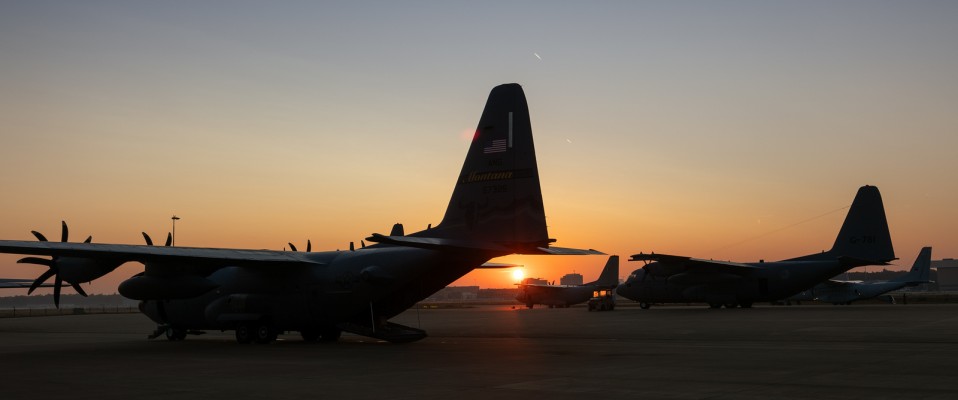Falcon Leap 2024: Strengthening NATO’s Aerial Mobility and Multinational Cooperation
Text and pictures by Danny Reijnen and Marco Ferrageau
September 30, 2024
In an increasingly interconnected and unpredictable global security environment, joint military exercises play a vital role in fostering cooperation, improving interoperability, and enhancing the readiness of multinational forces. Among such efforts, Exercise Falcon Leap 2024, the largest multinational airdrop training exercise in Europe, promised to be a cornerstone event for NATO and its partners, showcasing the alliance’s commitment to mutual defense, mobility, and rapid deployment of forces.
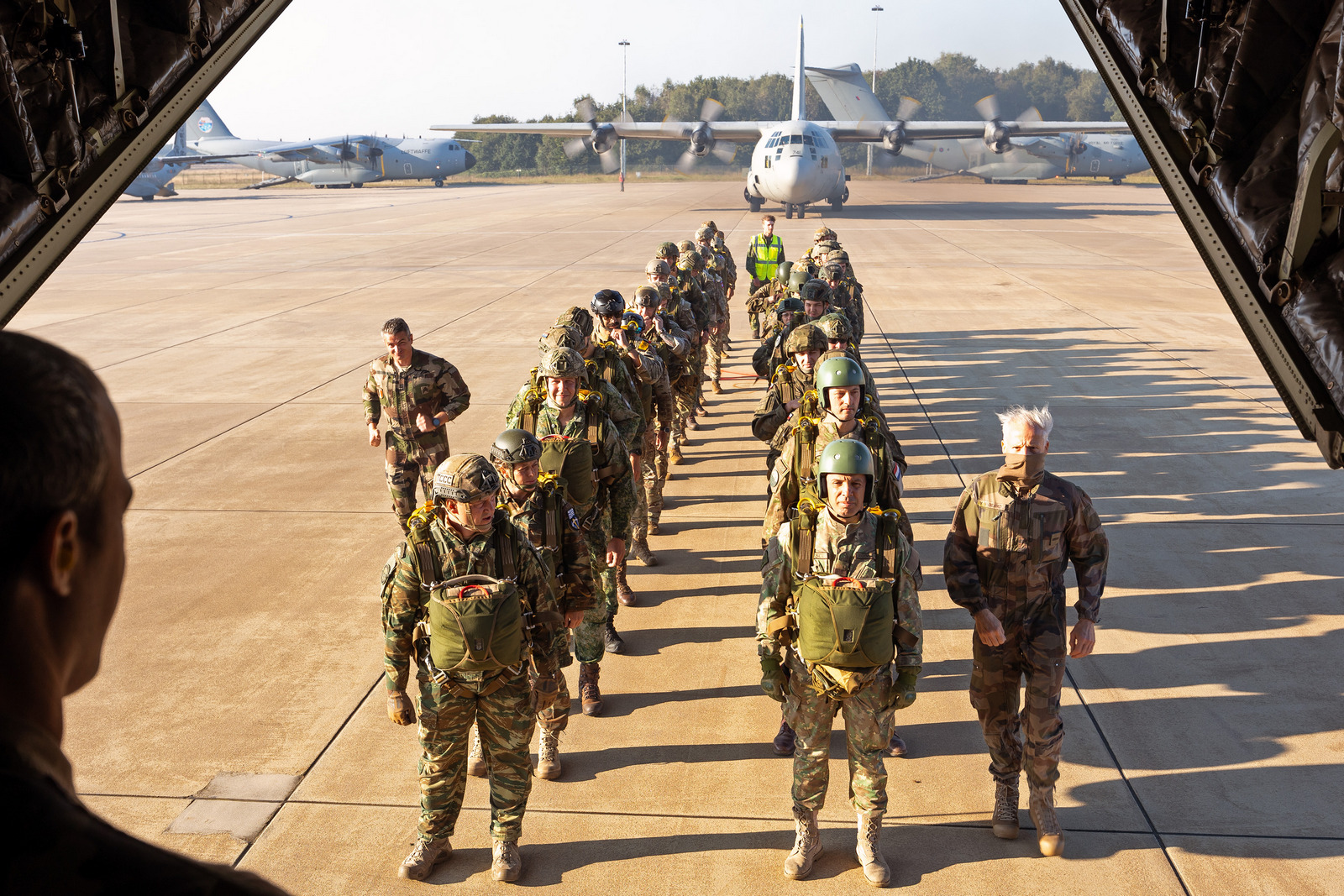
Overview of Falcon Leap
Falcon Leap is an annual military exercise led by the Royal Netherlands Air Force (RNLAF) and organized by the 11th Air Mobile Brigade focusing on airborne operations and interoperability among NATO countries and partner nations. It is named in honor of the 1st British Airborne Division’s Operation Market Garden of World War II, a large-scale airborne mission that took place in the Netherlands in 1944.
Falcon Leap 2024 took place from September 9th until September 21st, features several key components that highlight the evolution of air mobility and multinational coordination. The exercise involves complex scenarios, including paratrooper drops, tactical airlift operations, and ground support. Participating nations deployed airborne units, transport aircraft, and special operations forces, simulating real-world combat and humanitarian missions.
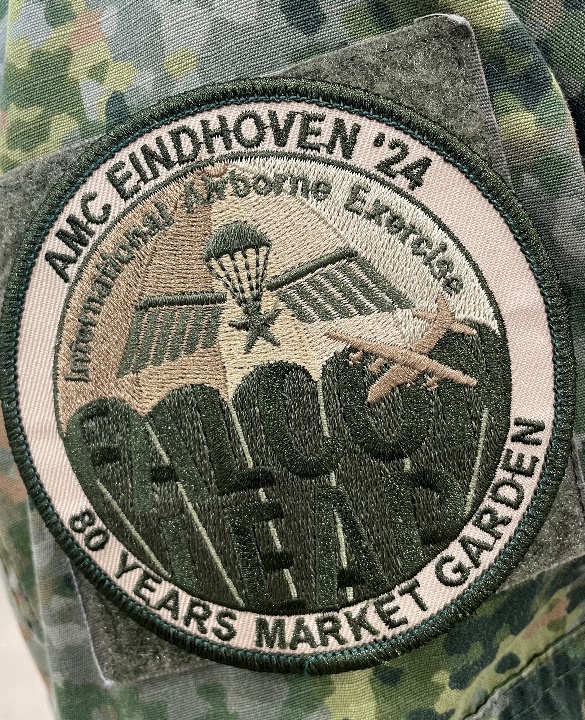 A major operation
A major operation
Royal Netherlands Airforce Luitenant-Colonel Linda Lauret, exercise director of Falcon Falcon Leap explains : “ With more then a thousand participants, I am responsible for managing the overall progression and flow of the exercise. The exercise started as a commemoration of market garden to include many paratroopers. In recent years, however, the exercise has grown much larger with many objectives. The Air Mobility Command supports the organizing unit, the Air Mobile Brigade during the exercise creating one of the major objectives during Falcon Leap, enhancing the interoperability between the Air Mobility Command and the ground forces. Furthermore, the exercise is creating possibilities to enhance joint airlift capabilities and improve airborne operation procedures.
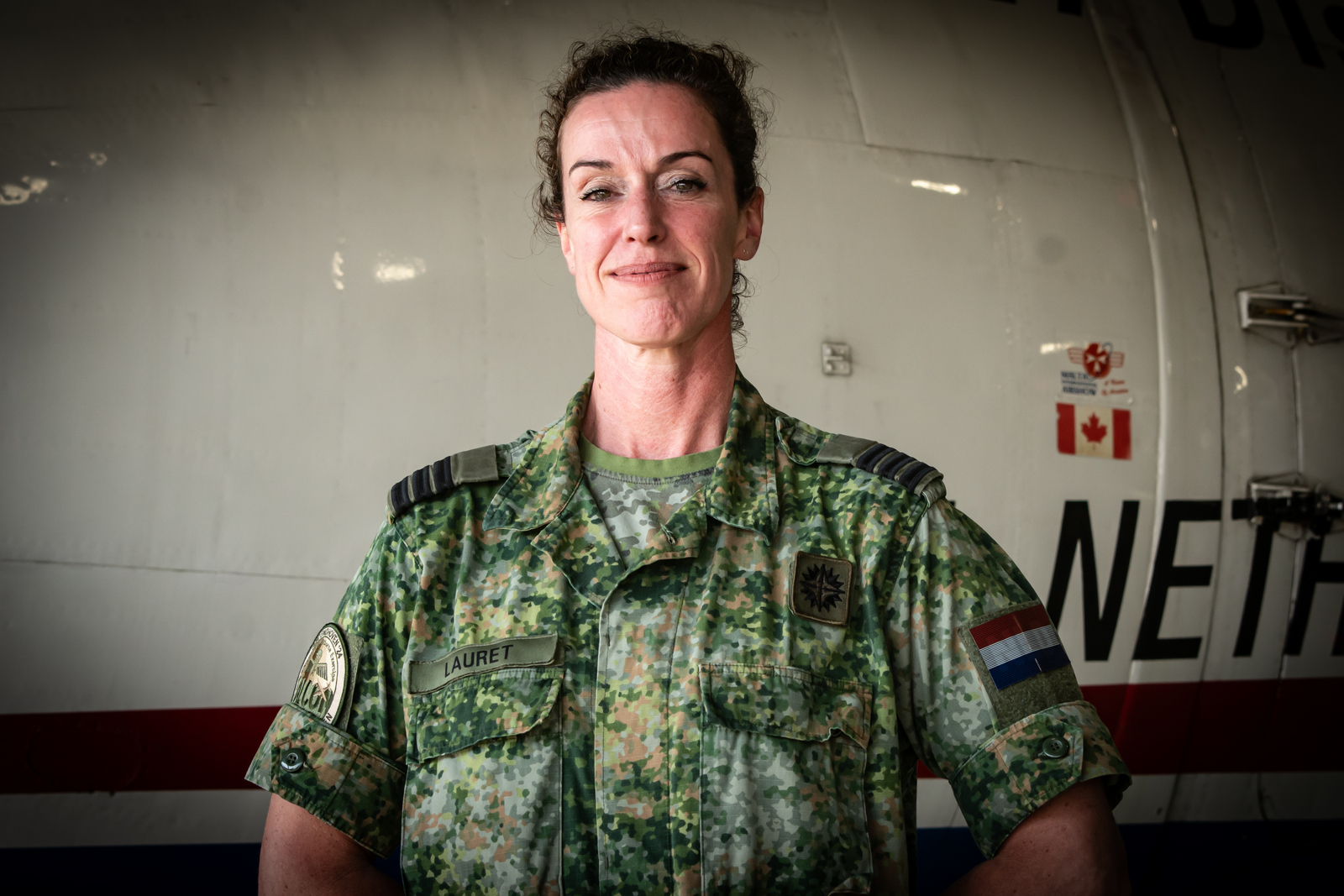
Objectives of Falcon Leap 2024
The exercise also aimed to:
- Enhance Readiness: The exercise ensures NATO and partner nations are prepared to respond swiftly to crises, including defense operations, humanitarian assistance, and disaster relief.
- Multinational Cooperation: Falcon Leap fosters stronger ties between participating countries, reinforcing the notion that security is a shared responsibility across the alliance.
- Operational Proficiency: By training in diverse scenarios, forces become proficient in overcoming the challenges of operating in different terrains, weather conditions, and under simulated hostile environments.
- Air Mobility Innovation: With rapid advancements in technology, air mobility continues to evolve. Falcon Leap 2024 saw new tactical airlifts using modernized transport aircraft, advanced communication systems, and real-time data sharing to improve decision-making.
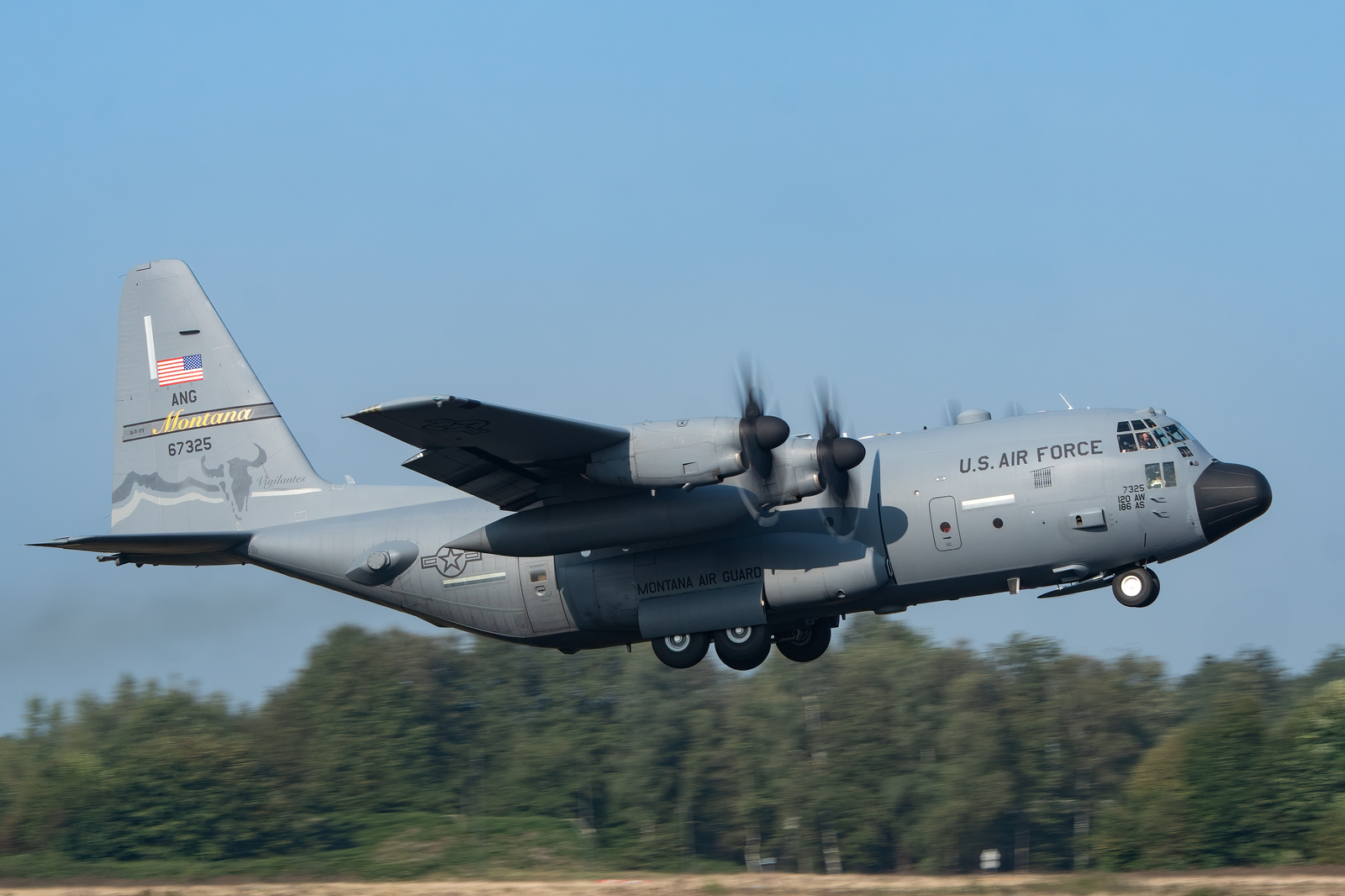
Participants and Key assets
Falcon Leap 2024 included over 1,000 military personnel from more than 12 NATO nations and partners, including flying assets from the United States, the United Kingdom, Germany, Romania, Spain, Greece, Portugal and the Netherlands. Each nation contributed key air and ground assets, with aircraft like the C-130 Hercules, C-27 Spartan and the A400M Atlas playing central roles in the airlift and paratrooper operations.
Special Forces units and airborne infantry will be a core part of the exercise, working closely with logistics teams, aircrews, and commanders to execute precise airdrop missions. The integration of these highly trained units underscores the exercise’s emphasis on delivering rapid responses in dynamic and high-pressure environments.
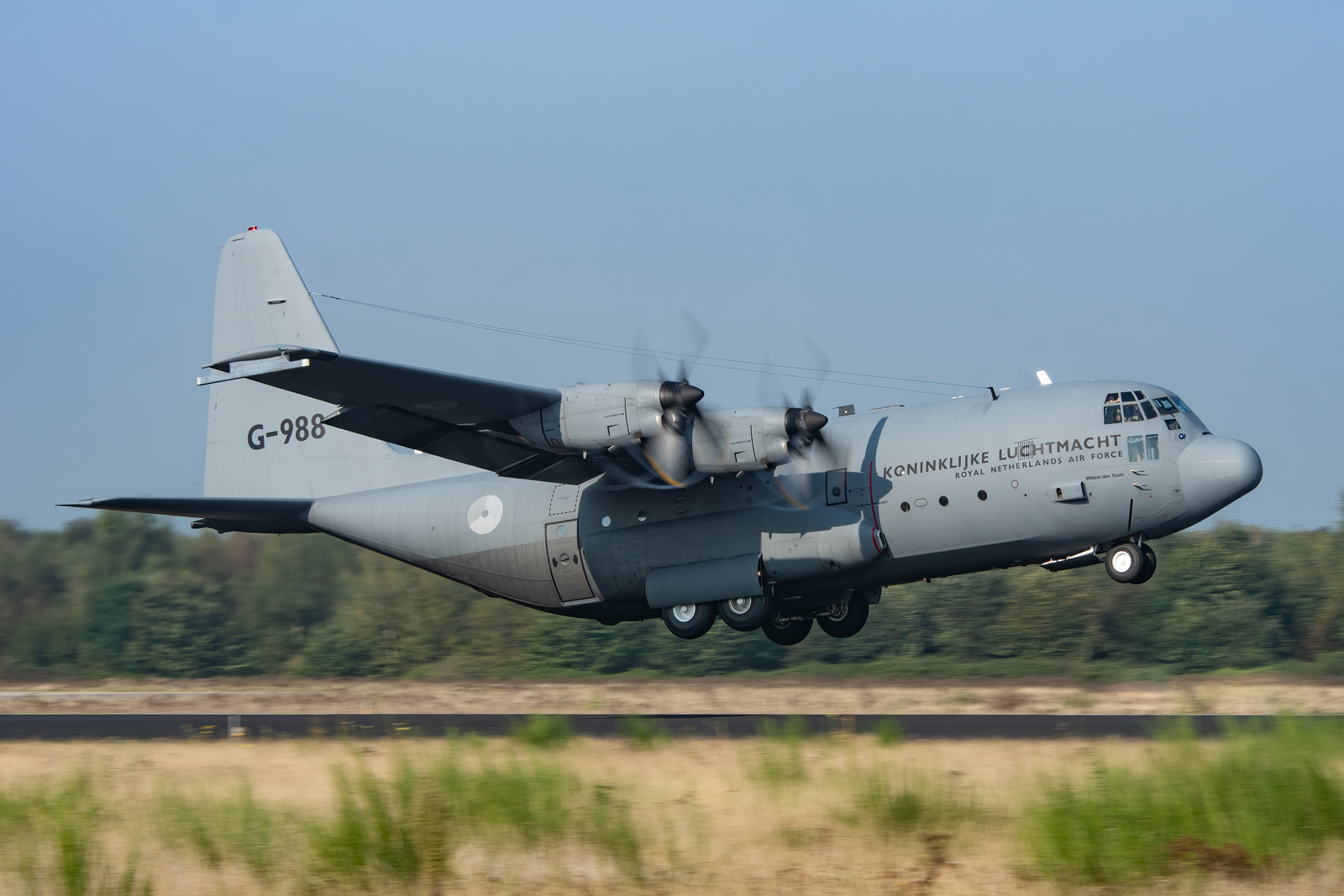
Honoring Operation Market Garden
This year, on September 21st, eighty years after hundreds of allied soldiers parachuted from military aircraft into Nazi-occupied Netherlands as part of a daring World War Two offensive, 800 paratroopers from eight NATO nations – including the Netherlands, Germany, UK and US – parachuted from around twelve aircraft. The jump was done in two waves and those involved landed at the same location at Ginkel Heath, also known as Dropzone Y, near the Dutch town of Ede. Dropzone Y was a critical part of Operation Market Garden eighty years ago.
The historical significance of the Falcon Leap exercise cannot be overstated. By commemorating Operation Market Garden, a bold yet ultimately unsuccessful effort to end World War II by securing key bridges in the Netherlands, the exercise honors the bravery of the allied paratroopers and soldiers involved landing at Dropzone Y. Falcon Leap regularly incorporates ceremonial events, including memorials and visits to key battle sites, allowing modern-day paratroopers to connect with their legacy.
The airdrop was one of several events organized to mark the anniversary of Operation Market Garden, an ambitious military offensive designed to speed up the invasion of Nazi Germany and shorten the war in Europe.
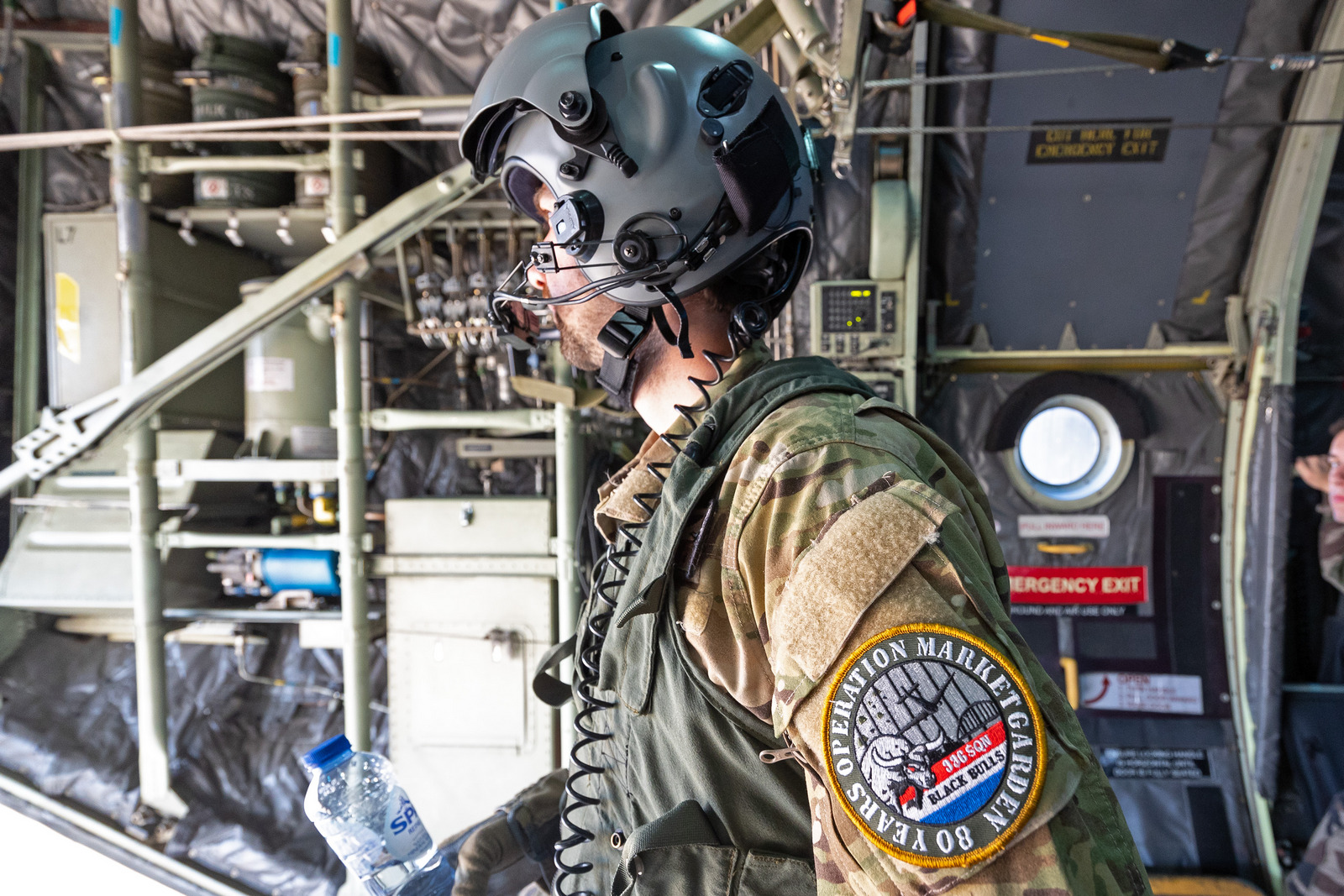
Strategic Importance for NATO
Exercise Falcon Leap 2024 took place amid ongoing global security challenges, where the ability to project power, deliver aid, or mobilize forces swiftly is critical for NATO’s strategy of collective defense. The exercise reinforces the alliance’s deterrence posture, demonstrating that member nations are prepared to deploy combat-ready forces at a moment’s notice.
As Falcon Leap 2024 now ended, it promised to build upon previous iterations by introducing cutting-edge technologies and training techniques. Through its focus on joint airborne operations, multinational cooperation, and honoring historical events, Falcon Leap remains a critical exercise for fostering NATO’s unity and readiness. The lessons learned will strengthen not only NATO’s airborne capabilities but also its overall capacity to respond to global challenges, reinforcing the alliance’s enduring commitment to collective defense and international security.
Danny Reijnen was born in Nijmegen, the Netherlands and currently resides in Almere in the Middle of the Netherlands with his girlfriend Susan and 4 kids.
Danny currently works for the Ministry of Defence at Schiphol Airport. His passion towards military aviation started when he was 7 years old. His dad took him to Volkel airbase. There he saw a lot of F-16s flying and he got hooked. He has been active in aviation photography since 1993.
When he first began, he was using an analog film camera. After awhile he got his first digital Konica Minolta 7D. After a couple of years the camera needed to be replaced and he bought a Sony A700. In 2015, he purchased a Sony A77 while continuing to use A700 as a secondary camera.
Despite of having a busy job, and being interested in taking photographs, Danny recently started to put his talent to use as a photojournalist in military aviation.
Danny can be reached at: [email protected]

